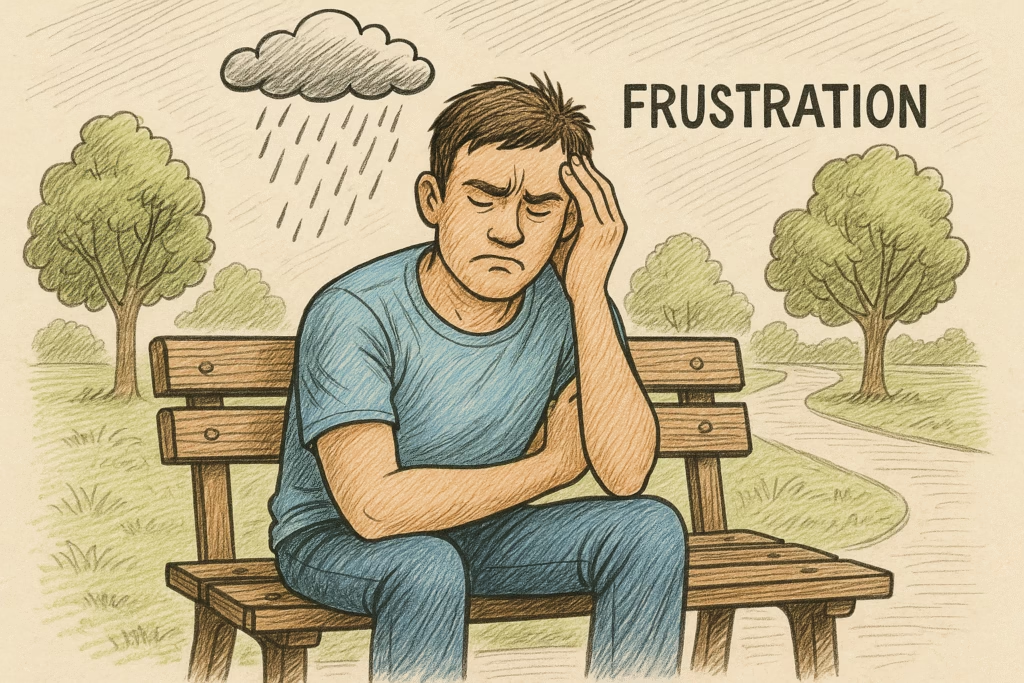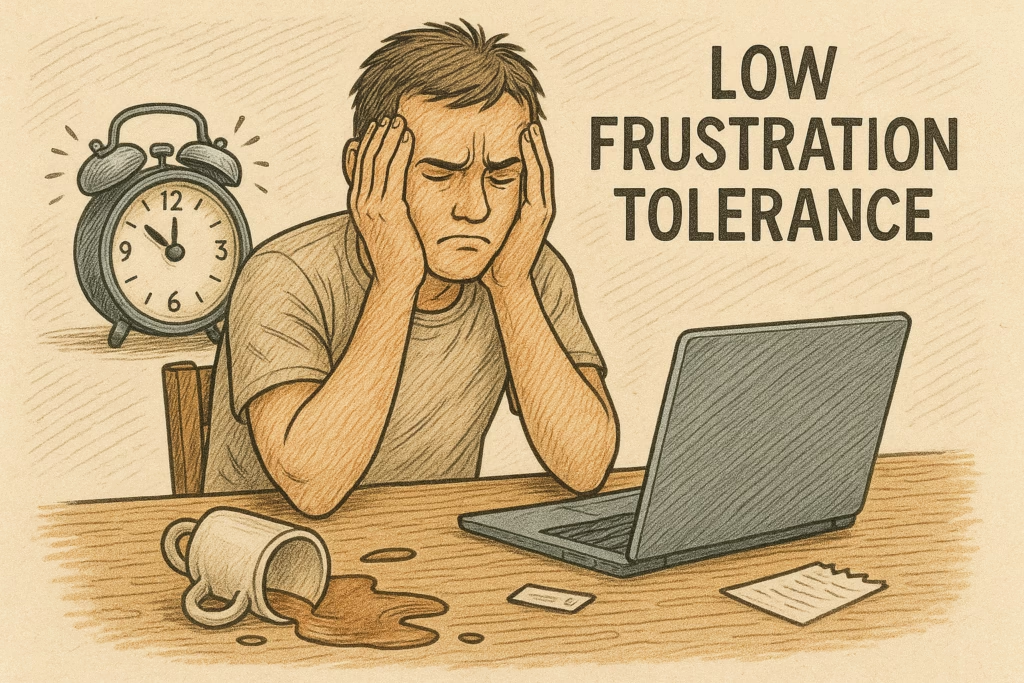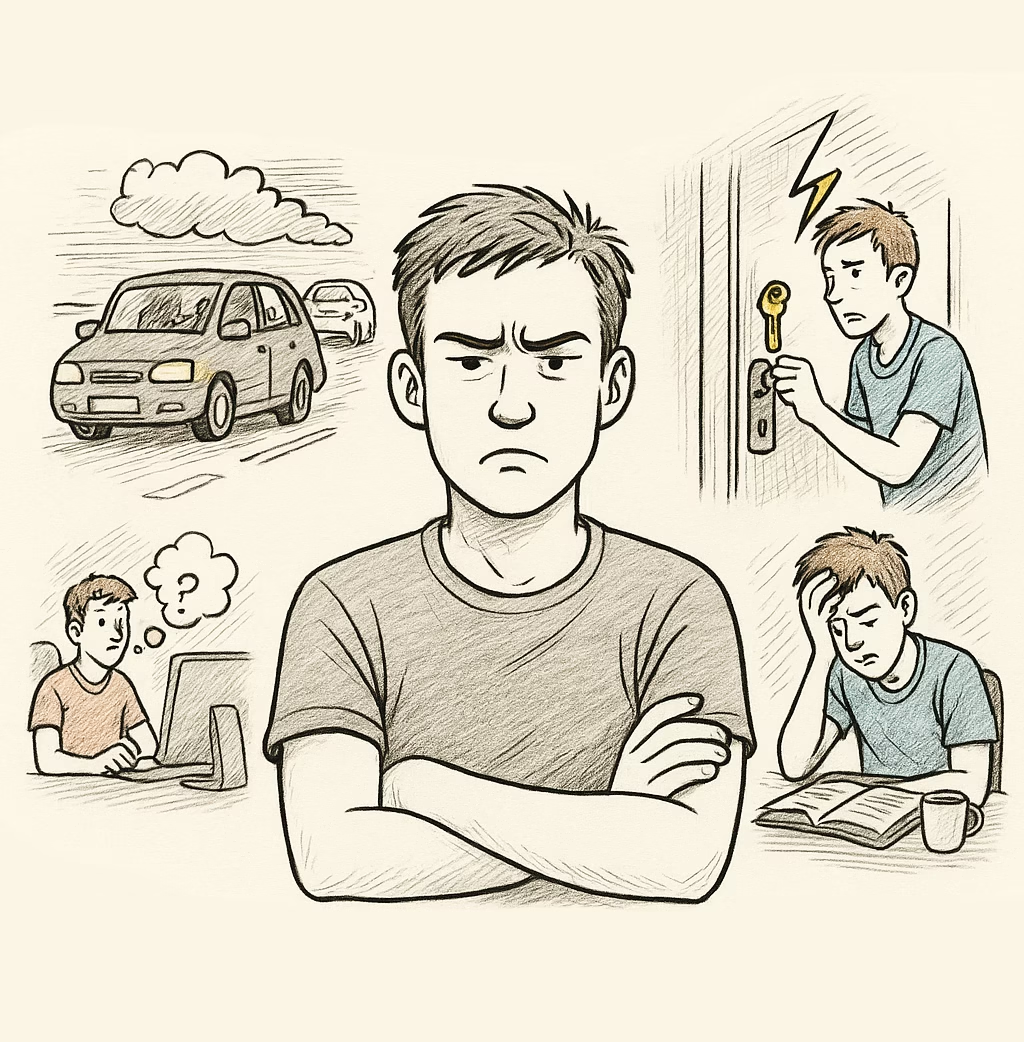Have you ever found yourself snapping at a slow-loading webpage, feeling overwhelmed by a minor inconvenience, or walking away from a conversation over something trivial? You’re not alone. Low frustration tolerance (LFT) is a common but often misunderstood challenge, especially for people with ADHD or other neurodivergent conditions. This article explores what LFT really means, why it happens, and how you can begin to manage it.
What Is Low Frustration Tolerance?

Low frustration tolerance is the tendency to become upset, irritable, or overwhelmed when things don’t go as planned. It often presents as:
- Snapping at others over small setbacks
- Feeling like you “can’t handle” certain tasks
- Avoiding challenges that seem too difficult or inconvenient
- Becoming emotionally flooded or shutting down quickly
It’s not about being rude or dramatic—it’s a real difficulty with regulating emotional responses to stress. For people with ADHD, emotional dysregulation is a core issue, and LFT is one of its expressions.
Why Does Low Frustration Tolerance Happen?
LFT often develops due to a mix of neurological, psychological, and environmental factors. Here’s why it might show up:
- Brain Wiring: People with ADHD often have differences in their brain’s reward system and emotional regulation centres. This makes it harder to tolerate discomfort or delay gratification.
- Cognitive Overload: When your working memory and attention are already overloaded, small issues can feel like the last straw.
- Unmet Needs: Fatigue, hunger, or overstimulation can dramatically lower tolerance levels.
- Early Learning: If you grew up in an environment where stress wasn’t managed well, you might not have developed strong coping strategies.
Everyday Examples of LFT
Understanding how LFT shows up in daily life can help you catch it early:
- Melting down over spilled coffee before an important meeting
- Getting angry at your child for interrupting while you’re focused
- Abandoning a task after hitting the first obstacle
- Giving up on plans when they require more effort than expected
Recognising these moments as signs of LFT (not character flaws) can be empowering.
How to Manage Low Frustration Tolerance
LFT doesn’t have to control your day. Here are some strategies that can help:

1. Name It When It Happens
Simply acknowledging, “I’m having a low frustration moment,” can help shift your mindset from reaction to awareness.
2. Use Self-Regulation Tools
Try techniques like:
- Box breathing
- Grounding with your senses (what you see, hear, feel)
- Stepping away from the situation briefly
3. Build Frustration Tolerance Gradually
Like muscles, emotional endurance grows with practice:
- Start with small annoyances (e.g. slow queues)
- Challenge yourself to stay present instead of avoiding them
4. Prepare for Triggers
If mornings are stressful, plan your outfit and breakfast the night before. If meetings drain you, schedule downtime afterwards.
5. Talk It Through
A coach or therapist can help you identify patterns and develop coping strategies tailored to your neurotype.
When to Seek More Support
If your frustration is frequently disrupting relationships, work, or your well-being, it might be time to explore deeper support. Executive function coaching, CBT, or ADHD-specific therapy can be game-changers.
Takeaway
Low frustration tolerance is not a personal failure—it’s a sign that your brain is working hard and needs support. With awareness and practical strategies, you can move from meltdown to momentum. And the more you understand how your brain works, the more compassion you can show yourself along the way.

